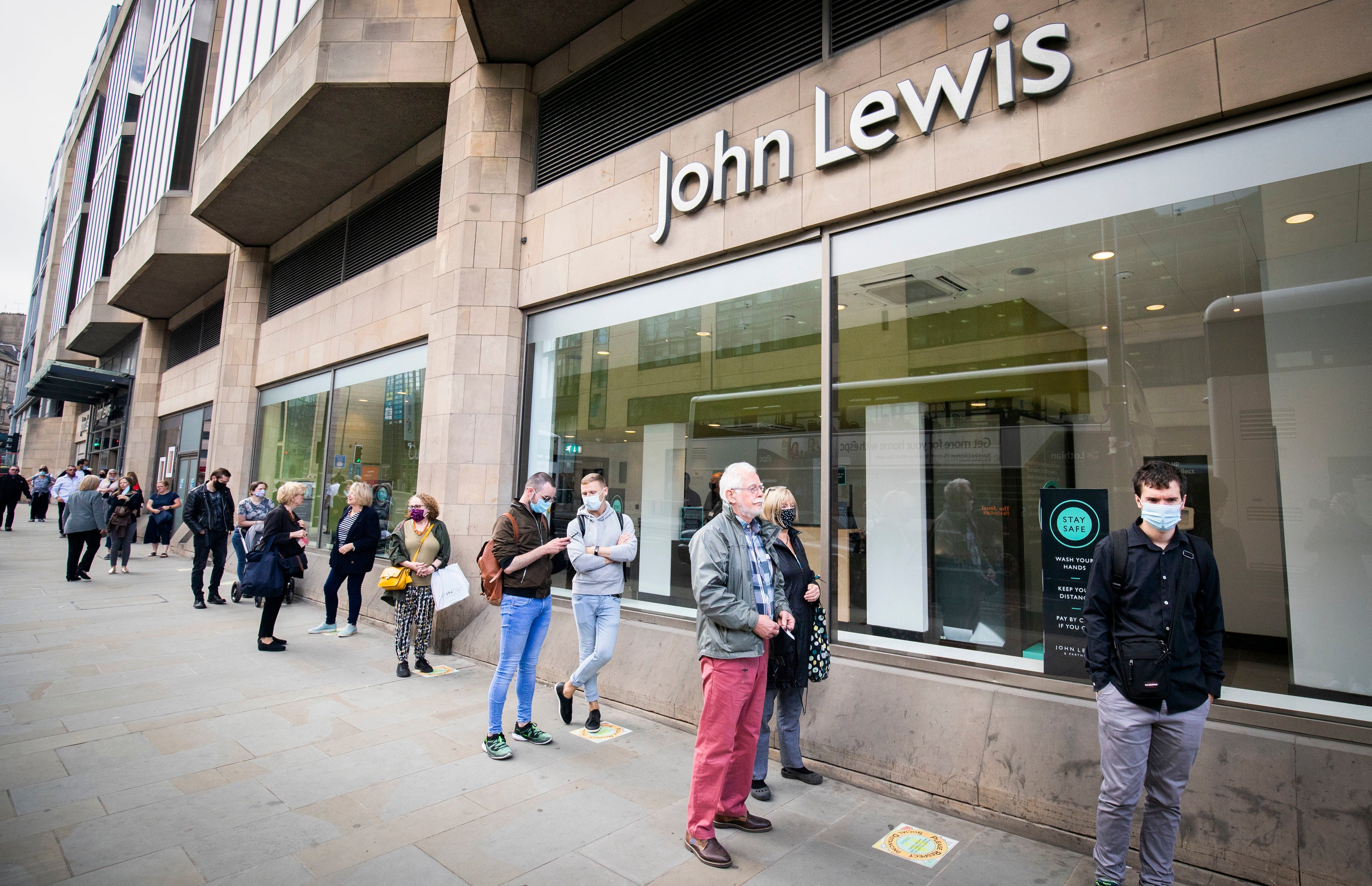John Lewis warns of more store closures when lockdown ends after posting £517m loss
‘Regrettably, we do not expect to reopen all our John Lewis shops at the end of lockdown,’ says partnership’s chair Sharon White

Your support helps us to tell the story
From reproductive rights to climate change to Big Tech, The Independent is on the ground when the story is developing. Whether it's investigating the financials of Elon Musk's pro-Trump PAC or producing our latest documentary, 'The A Word', which shines a light on the American women fighting for reproductive rights, we know how important it is to parse out the facts from the messaging.
At such a critical moment in US history, we need reporters on the ground. Your donation allows us to keep sending journalists to speak to both sides of the story.
The Independent is trusted by Americans across the entire political spectrum. And unlike many other quality news outlets, we choose not to lock Americans out of our reporting and analysis with paywalls. We believe quality journalism should be available to everyone, paid for by those who can afford it.
Your support makes all the difference.John Lewis has warned staff it will permanently close more stores after the “most challenging year in the partnership’s history”.
The department store chain reported huge losses, largely due to coronavirus lockdowns that have seen its stores close for long periods and prompted a rapid shift to online shopping.
In an announcement on Thursday, John Lewis did not say how many of its 42 department stores would remain closed after lockdown is lifted. A decision is expected to be made by the end of March.
Pre-tax losses were £517m for 2020-21, compared to a £146m profit the year before, John Lewis announced on Thursday.
“Regrettably, we do not expect to reopen all our John Lewis shops at the end of lockdown, which will also have implications for our supply chain,” the company announced. “We are currently in discussions with landlords and final decisions are expected by the end of March.”
The closure of restaurants and pubs helped Waitrose to boost its sales but that was not enough to make up for the “substantial decline” at John Lewis stores as non-essential physical retailing shut down.
John Lewis chair Sharon White said: “Hard as it is, there is no getting away from the fact that some areas can no longer profitably sustain a John Lewis store.”
Last year, John Lewis launched a radical overhaul of its business that included a proposal to move into housing and to expand its financial services business. It also hopes to save £300m a year by 2022-23.
It is hoped that the sweeping changes brought in under Ms White will revive the fortunes of the 157-year-old business which, like many retailers had been battling to adapt to changing shopping trends before the pandemic struck. The group expects 70 per cent of purchases to be online by 2025.
Ms White said closing stores was “one of the hardest decisions we can make” and that the partnership would do all it could. “We will do everything we can to lessen the impact and will continue to provide community funds to support local areas,” she added.
Retail expert, Dr Gordon Fletcher, of the university of Salford Business School said no large retailer could react quickly enough to deal with the speed of change brought about by the pandemic.
“The impact of this changing pattern of purchasing has forced the partnership to write down the value of its physical stores.
“Their footprint is no longer as valuable as they once were as a result of the move to online. The financial result has prompted a management decision to not reopen some John Lewis stores after lockdown.”
Guy Elliott, of consultancy Publicis Sapient was more upbeat about the company’s prospects.
“John Lewis has managed to weather the Covid-19 storm quite well thanks to a fairly mature online offering and a diversified portfolio of products, including many categories that have seen increased spending during the pandemic – household, furniture etc.”
While some analysts have predicted the end of department stores on UK high streets, Mr Elliott said they still have a role to play.
“Despite the recent demise of many UK favourites, department stores have the ability to provide a broad range of curated products that allow people to browse, discover and experience without having to traipse from store to store.
“If well targeted and curated, they have the opportunity to open up to promote new designers, alternate product lines and such; things that you can’t get from shopping at individual retail stores.”
John Lewis confirmed it intended to keep the money it saves from a three-month extension to business rates relief announced by Rishi Sunak last week.
A number of supermarkets and other large retailers that have remained open during lockdowns have handed over the saving to government after a public backlash. John Lewis has argued that while Waitrose has remained open, its overall sales have been heavily impacted by the pandemic and so it does not feel obliged to follow suit.
Property consultancy Altus estimated that the extension from April to June will save John Lewis £43m.
Then pandemic has been brutal for retailers with Oasis, Warehouse, Topshop and Debenhams among the brands to meet their demise. Further administrations and store closures are expected later in the year as government support including the furlough scheme is withdrawn.

Join our commenting forum
Join thought-provoking conversations, follow other Independent readers and see their replies
Comments